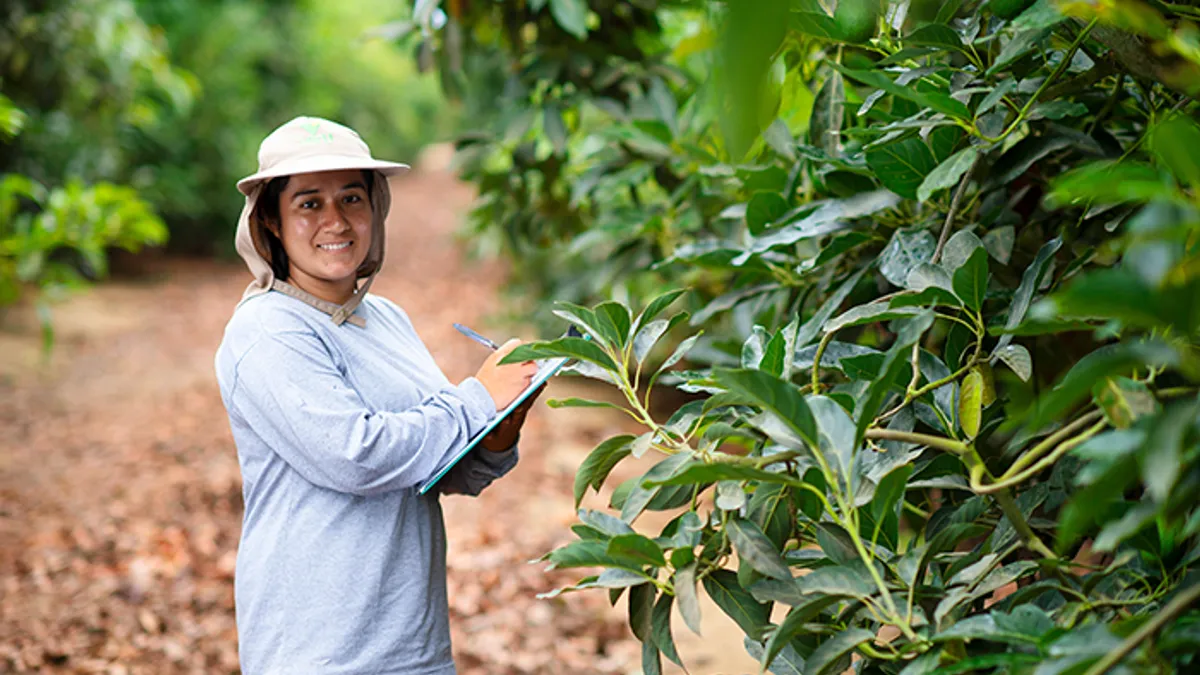On July 8, 2019, the small town of Virú, on the western coast of Peru, welcomed a newly refurbished school. What was once three classrooms in pre-fabricated trailers situated next to a dirt patio became a six-classroom facility, decked out with computers, a dining room, administrative offices and a playground.
Educational Institution N°2117 was built to serve more than 170 children – and was built not with public dollars, but by agro-industrial producer Viru, an initiative to give back to the community from which the company was born.
The largest preserved, fresh and frozen fruits and vegetables producer in Peru has close to a 30-year history of operating with the needs of its 17,000 people and local community as top of mind. Serving more than 30,000 acres of crops – including artichoke, asparagus, avocado and blueberry – and 10 processing plants, the company has adopted a four-pillar sustainability strategy that includes people and communities. It was this strategy, and projects like Educational Institution N°2117 that has earned Viru the title of Great Place to Work in Peru year after year.
Put People First
“People are the most important asset of the company,” says Director of Human Resources, Oscar Echegaray. “We strive to maximize our positive impact in the social, employment and human rights sectors.” This includes tending to both “the well-being of our staff and the quality of life of the communities living within the areas of influence of our operations.”
It was an observation of a struggling quality of life in the town surrounding Viru’s first plant – in part, a result of low social assistance by the government – that inspired the company to invest in its local community some 20 years ago.
“Unfortunately, in Peru, the development of infrastructure and benefits (highway, schools, electricity, hospitals, etc) from the government does not arrive as [quickly] as it should,” CEO Yoselyn Malamud adds. “We saw how Viru was developing, but the living conditions of our people did not improve as they should.”
Provide Essential Resources for Success
And environmental catastrophes have only heightened the urgency of these endeavors. In 2017, El Niño, the naturally-occurring movement of warm water through the central and east-central equatorial region, brought abnormal deadly downpours, flash floods and landslides to Northern Peru. This ravaged communities in Virú and residents were left to rebuild their houses. The agro-industrial producer by the same name stepped up to help, not only giving food and health supplies during the crisis, but also providing construction materials and interest-free loans – an extension of their existing program, “Building Hope.” This relationship with its employees proved mutually beneficial: Malamud says it was the resolve of its employees that allowed Viru to continue operating.
Viru’s long-term social sustainability strategy is far-reaching and multifaceted. For instance, the company offers its staff free full-day day care and home building loans. At the "My Little Viru" Day Care Centre, employees of qualifying economic status can drop off children between the ages of 1 and 4 as early as 5:30 a.m., where they’re cared for by a team of “well-trained professional staff.” They are fed and engaged in learning and development, all free of cost. “This way, our [employees] can have the security and guarantee of continuing to work, knowing that their little ones are in good hands,” Echegaray says.
Additionally, Viru deploys free medical care – including health and nutritional advice, disease prevention, diagnosis and treatment – to residents of Virú and all villages close to our facilities located in the area of Trujillo. To date, the program has served more than 800 families. Viru plans to “improve and enlarge this program as much as possible,” Echegaray says. “For Viru, it is important to contribute to the health of the population.”
Move Forward with Social Good in Mind
As it looks ahead, Echegaray’s team is continuing to look for ways to live out its vision of serving the United Nations’ 17 Sustainable Development Goals (SDGs), including their mission to eliminate poverty, improve education and promote equality for women. The four pillars of its social sustainability strategy – responsible environmental management, purpose-driven corporate governance, people and commitment to society – that drove it to rebuild Educational Institution N°2117 in 2019 and are now driving Viru to build a sports complex near its facility. With the goal of cultivating green, recreational space, Echegaray hopes the complex will offer rest and relaxation to the community.
“Sustainability is part of our reason to be, in all our actions and in each of our products,” CEO Yoselyn Malamud said. “The new sustainability strategy boosts our commitment towards our people, communities, and the environment. It’s an amazing journey.”










